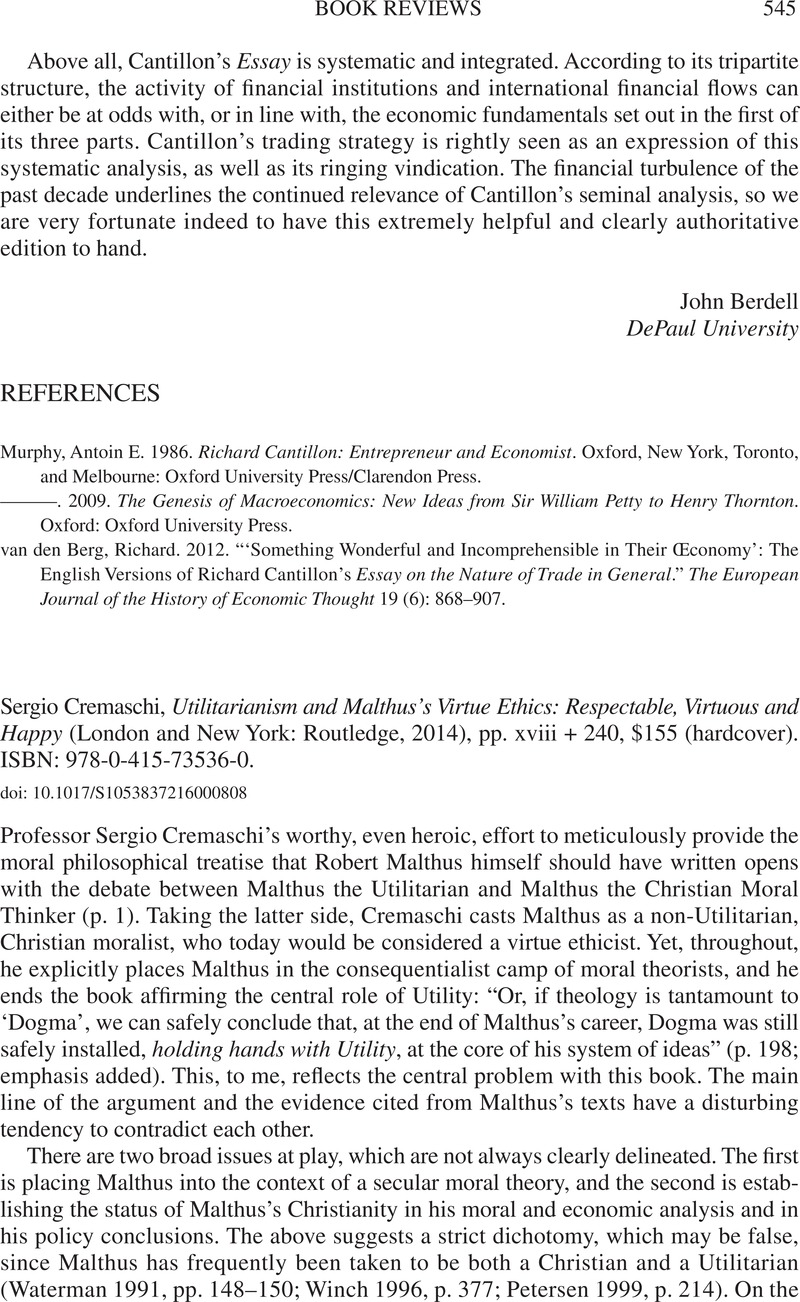No CrossRef data available.
Article contents
Sergio Cremaschi, Utilitarianism and Malthus’s Virtue Ethics: Respectable, Virtuous and Happy (London and New York: Routledge, 2014), pp. xviii + 240, $155 (hardcover). ISBN: 978-0-415-73536-0.
Published online by Cambridge University Press: 18 November 2016
Abstract
An abstract is not available for this content so a preview has been provided. Please use the Get access link above for information on how to access this content.

- Type
- Book Reviews
- Information
- Copyright
- Copyright © The History of Economics Society 2016
References
REFERENCES
Hollander, Samuel. 1997. The Economics of Thomas Robert Malthus. Toronto, Buffalo, and London: University of Toronto Press.CrossRefGoogle Scholar
Malthus, Thomas Robert. [183?] 2006. On the Principle of Population. Elibron Classics facsimile edition of the seventh edition published by E.P. Dutton & Co. New York. (No date given.)Google Scholar
Petersen, William. 1999. Malthus; Founder of Modern Demography, with a New Introduction by the Author. New Brunswick, USA, and London: Transaction Publishers.Google Scholar
Waterman, Anthony. 1991. Revolution, Economics and Religion: Christian Political Economy 1798–1833. Cambridge: Cambridge University Press.CrossRefGoogle Scholar
Winch, Donald. 1996. Riches and Poverty: An Intellectual History of Political Economy in Britain, 1750–1834. Cambridge: Cambridge University Press.Google Scholar


